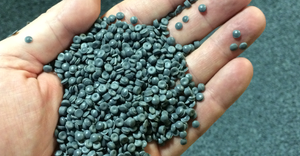Recycling Contamination Up in Marion County as Residential Waste Increases
June 2, 2020

Since late March, Republic Services has seen recycling contamination increase by as much as 41 percent in the Indianapolis, Ind. area due to the coronavirus pandemic.
Recycling contamination, or the presence of non-recyclable items in recycling bins, slows down operations at the recycling facility and can even lead to more waste.
Facing the increases in waste and contamination seen in recent months, the City of Indianapolis and Republic Services are asking residents to remember recycling etiquette at a time when recycling facilities are already coping with social distancing measures for their front-line workers.
Republic Services first noticed a shift in waste volume when schools started closing in mid-March, said Craig Lutz, area senior municipal sales manager for the company.
Then when businesses, restaurants and bars closed for carry-out services only, the amount of residential waste increased by almost 30 percent, he said.
And as all of this additional waste came in, he said, they noticed more and more of it wasn’t recyclable.
Yard waste and takeout containers that weren’t recyclable were finding their way into Republic’s sorting lines. In some cases, people threw entire bags of trash in their recycling bins — a reaction, Lutz guesses, caused by people producing so much trash that it didn’t fit in their normal trash bins.
Recycling contamination levels are usually around 25 percent to 30 percent, Lutz said. But in the last couple of months, Republic saw loads coming in with contamination levels as high as 70 percent.
To adapt, Republic temporarily suspended bulk and heavy items nationally, Lutz said, and slowed down their sorting lines while adding labor.
Coupled with the fact that operations were already being affected to comply with social distancing standards — and the added cost of adding plexiglass barriers between workers’ stations — it’s been an expensive couple of months, Lutz said.
“But these were costs that we said are vital and important," Lutz said. "We saw it was vital in ensuring we do everything we can to help the men and women that work very hard to do the sorting.”
You May Also Like


